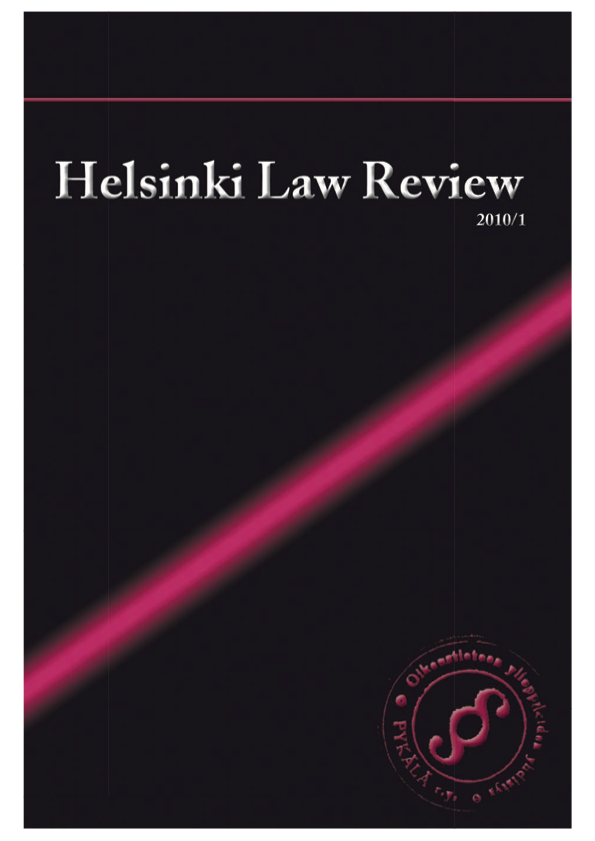The Finnish Poison Pill: Buyout Obligation Triggered by Acquisition of Shares
Abstract
In Finland, the term poison pill (Finnish: myrkkypilleri) refers to a clause in a company’s articles of association, obligating any shareholder whose share of the stock or the voting rights in the company reaches or exceeds a certain level, to buy out the other shareholders if they so demand. The motivation for the adoption of such a clause is that it, ex ante, hinders takeover attempts by way of raising the price of control, and, ex post, secures a viable exit for the remaining shareholders after a shift in control. Thus, the Finnish poison pill is effectively and terminologically vastly different from the poison pill defensive measures used in the US.
The validity of said clauses has been debated particularly in the last decade of the twentieth century. Arguments in favor of validity include the discretionary nature of the Limited Liability Companies Act, the amelioration of minority shareholder protection, certain opinions expressed in the travaux préparatoires of the LLC Act, and the importance of efficiency in the equities market. The most prominent argument against the validity of such clauses is that they would be in breach of the principle of transferability of shares. The Act provides, exhaustively, only two possible transfer restrictions to be adopted in the articles of association: the redemption clause and the consent clause. It has been argued that both systematic reasons and the wording of the Act show that the so-called poison pill clauses inflict restrictions to the transferability of shares that cannot be adopted in the articles of association. In Sweden, where statutory law also enumerates the lawful transfer restrictions in a very similar way, it has been accepted that a clause of this type is clearly in breach of the law.
In the case KKO:2005:122, the Finnish Supreme Court found that such clauses are not in breach of the Act by nature. According to the Court’s decision, while the clauses do not, in the Court’s view, impose legal restrictions on the purchase of shares, their validity should be assessed case by case. In the case at hand the so-called poison pill clauses were exceptionally strict. The Court concluded that the provisions the company had adopted imposed an effective limitation on the acquisition of shares in the company. On these grounds, the court found that the clauses were in casu invalid.
In conclusion, the validity of so-called poison pill clauses remains unclear. The aforementioned Supreme Court case does not outline the rules that should be taken into consideration when assessing the validity of the clauses. On this basis, the article tries to establish grounds for the assessment of the validity of so-called poison pill clauses as well as suggest legislative changes to mitigate the difficulties arising from the uncertain validity of a key anti-takeover provision.


